emissions
Latest

EPA faces lawsuit from 17 states over reversing car emissions rules
The EPA under Scott Pruitt may have dreams of undoing Obama-era car efficiency targets, but it's not going to go unopposed. A group of 17 states, including California and New York, is suing the EPA in DC over its bid to drop clean car emissions standards for model years between 2022 and 2025. The lawsuit accuses the EPA of violating the Clean Air Act, failing to follow its own rules and acting "arbitrarily and capriciously" without evidence to support its decision.

NHTSA proposal would override California's tougher emissions rules
The Trump administration hasn't been shy about wanting to roll back emissions and fuel economy guidelines, but there's been a key obstacle to that: California. It has a waiver permitting it to apply tougher emissions standards, and that (combined with support from 12 other states) effectively dictates the rules for automakers across the US. Officials may soon force California to honor looser federal standards, however. The Wall Street Journal has learned of an NHTSA proposal that would not only freeze increases on fuel emissions standards between 2020 and 2026, but would include "scenarios" that would let it override or even eliminate California's authority to maintain its own increases.
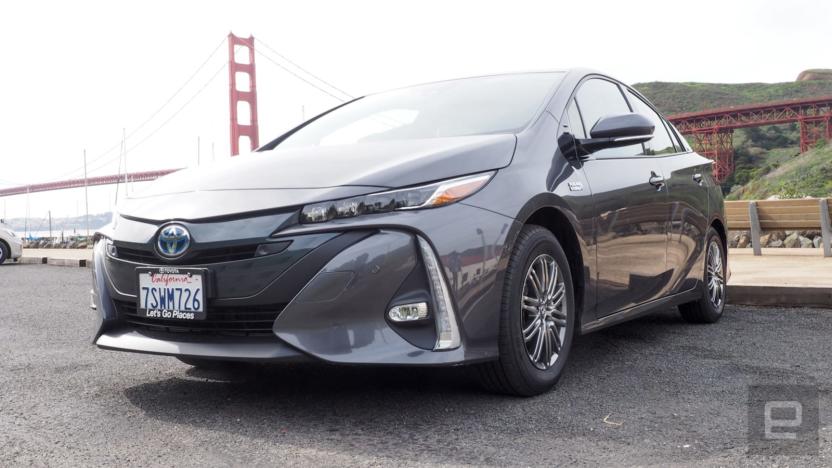
Court blocks Trump's delay of fuel efficiency penalties
The Trump administration's efforts to undo car efficiency guidelines just hit a major obstacle. A federal court has blocked a White House attempt to delay the implementation of a rule toughening penalties for automakers that don't meet national fuel efficiency standards. The measure (which was supposed to take effect in July 2017) raises the penalty rate by $8.50 for every tenth of a mile per gallon beyond the minimum fuel standard. The hope, unsurprisingly, was to encourage brands to hit Corporate Average Fuel Economy (CAFE) targets through 2025, reducing CO2 emissions and saving drivers money.

EPA wants to roll back Obama-era auto efficiency guidelines
Under the Obama administration, the EPA instituted a set of goals for automakers aimed at improving vehicle efficiency and reducing greenhouse gas emissions. The terms state that companies have until 2025 to get their fuel efficiencies up to a fleet average of 51.4 miles per gallon. But automakers have been asking Donald Trump to change those regulations ever since he took office and now it looks like the EPA will attempt to relax those standards.
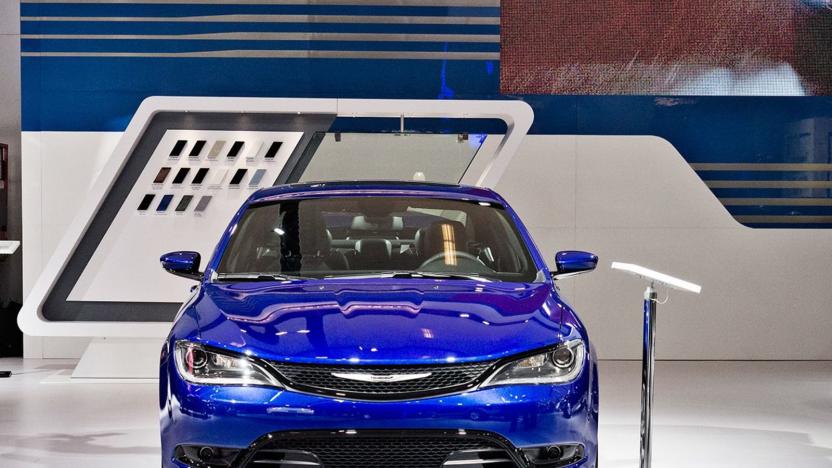
Fiat Chrysler reportedly phasing out diesel passenger cars by 2022
Fiat Chrysler's diesel plans are back in the spotlight again. The Italian-American car maker was hit with several lawsuits last December, each claiming that the company's heavy-duty pickup trucks used devices aimed at cheating emissions tests. Last month, the EPA said that Chrysler had violated the Clean Air Act, alleging that the company had installed software in some diesel vehicles that increased emissions. Now Fiat Chrysler Automobiles (FCA) is apparently ditching diesel as a fuel source in its passenger cars by 2022, according to a report in the Financial Times.
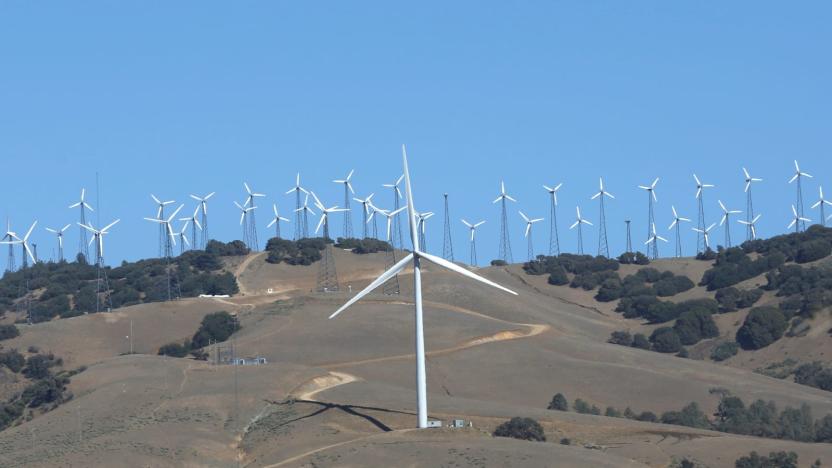
Nearly all new US electricity capacity was renewable in 2017
Renewable energy played an important role in the US last year... although you might not want to cheer too loudly. Data from both the Rhodium Group and the Energy Information Administration shows that solar and wind power represented 94.7 percent of the net new electricity capacity (15.8GW out of 16.7GW) added in 2017. However, that's mainly because fossil fuel power continued to fade away. Electrek noted that plant closures removed 11.8GW of utility-scale fossil fuel power from the equation -- this was more a testament to the decline of coal than a triumph for green tech.
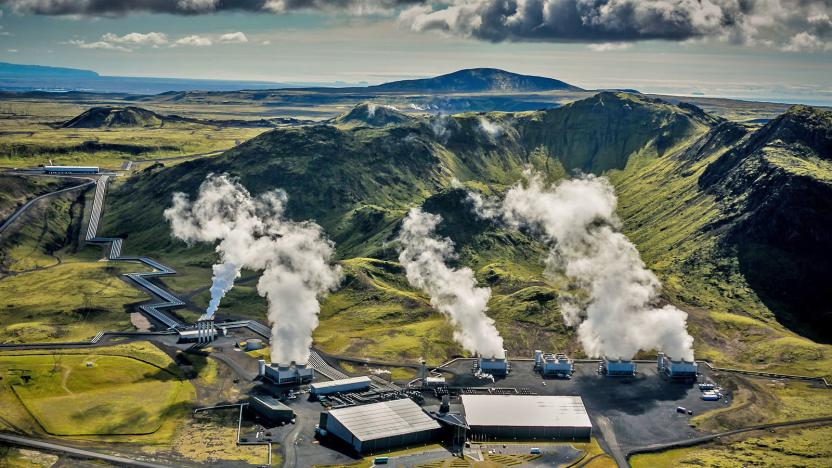
First-ever 'negative emissions' power plant goes online
Unfortunately, it's no longer enough to cut CO2 emissions to avoid further global temperature increases. We need to remove some of the CO2 that's already there. Thankfully, that reversal is one step closer to becoming reality. Climeworks and Reykjavik Energy have started running the first power plant confirmed to produce "negative emissions" -- that is, it's removing more CO2 than it puts out. The geothermal station in Hellsheidi, Iceland is using a Climeworks module and the plant's own heat to snatch CO2 directly from the air via filters, bind it to water and send it underground where it will mineralize into harmless carbonates.

Car makers ask US officials to loosen fuel economy requirements
It's no secret that automakers believe the US' recently-instituted fuel efficiency requirements are too stringent, but now they've made those views official. The Alliance of Automobile Manufacturers, which includes companies like GM, Toyota and VW, has made official comments to both the EPA and NHTSA asking the regulators to loosen Obama-era rules intended to raise a fleet's average fuel economy to 51.4MPG by 2025. They don't object to the targets as such -- rather, they don't like the projected costs of reaching those targets.

Dyson plans to release its own EV by 2020
An unlikely player has stepped onto the electric vehicle playing field. Vacuum cleaner and hairdryer producer Dyson announced today that it has already begun working on its own EV and that it should be ready for launch by 2020.

Researchers estimate the human cost of emissions cheating (updated)
We've known for a while that there is a link between the emissions coming out of a car's tailpipe and various cardiovascular conditions. In fact, diesel cars are significantly worse for people's life expectancy than their petrol-powered equivalents. Now, a coalition of researchers have tried to put a figure on the number of otherwise avoidable deaths caused by these vehicles: 10,000 a year.

VW engineer sentenced to 40 months in prison for emissions cheating
Former Volkswagen engineer James Liang is taking the fall for his employers sins. Liang has been sentenced to 40 months in federal prison, and has been ordered to pay a $200,000 fine for his part in the German automaker's deception about diesel emissions. That fine is 10 times the amount prosecutors were seeking, according to Reuters. While his defense argued for house arrest considering he'd only "blindly executed" his marching orders out of "misguided loyalty."

California continues to lead the US in renewable energy
In 2006, California adopted aggressive legislation aimed at reducing greenhouse gas emissions and boosting renewable energy production throughout the state. And since then, the state has been tracking its progress through its annual California Green Innovation Index report. The ninth report was just released this week and it shows that the state has made some major progress towards its renewable energy goals while hitting a bit of a bump in regards to its emission reductions.

Mazda's engine breakthrough promises big fuel efficiency gains
Mazda has made the announcement car manufacturers have been working towards for years: it's releasing the first commercial compression-ignition gasoline engine. Dubbed SkyActiv-X, the engine will be available in 2019 and promises up to 20-30% more engine efficiency than the current SkyActiv-G, and up to 45% more than Mazda's 2008 petrol engine. Current gasoline engines rely on a spark plug to ignite their air-fuel mix. The SkyActiv-X will ignite the air-fuel mix spark-free through compression, like a diesel engine. This, according to the Japanese manufacturer, combines the advantages of petrol and diesel engines to achieve "outstanding" environmental and power performance.

Scientists find cleaner, more efficient way to turn CO2 into fuel
Conventional fuel aren't going away just yet, but that doesn't mean you can't produce them in a more responsible way... and scientists might have found that way. They've developed a process that can convert CO2 into carbon monoxide (and subsequently into fuel) using solar energy with nearly flawless selection -- that is, you can get the material you want virtually every time. The trick was to create a spongy nickel-organic photocatalyst that purposefully includes a lot of defects, letting it produce adequate amounts of carbon monoxide without creating surprise molecules.
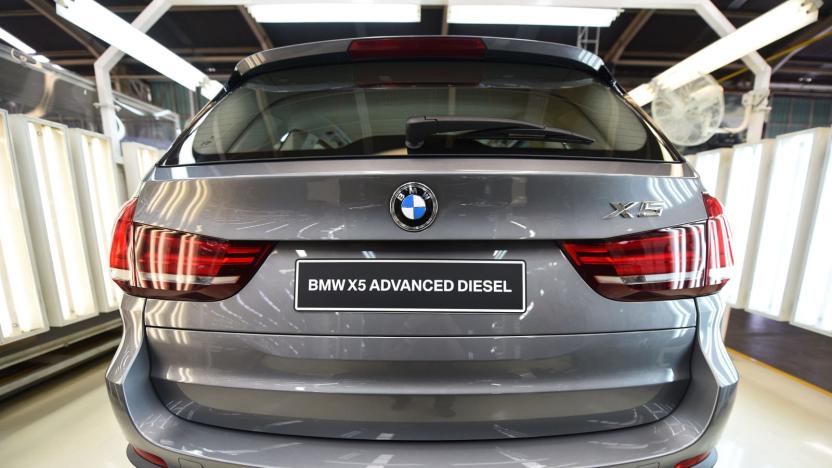
BMW denies conspiring with rivals on diesel emissions systems
VW isn't the only German automaker reeling from the effects of diesel emissions scandals. BMW is denying Der Spiegel allegations that it not only colluded with Daimler and the Volkswagen Auto Group (including Audi and Porsche) on the designs and prices for AdBlue diesel emissions treatment systems, but fell short of European exhaust standards. While the newspaper claims that BMW's thousand-plus meetings with rivals amounted to a "cartel," BMW insists that the meetings were simply meant to create a Europe-wide infrastructure for AdBlue. It also claims that the technology (which injects urea into the mix to help reduce emissions) meets the latest European requirements, and that it can update the software on older cars to meet that standard.
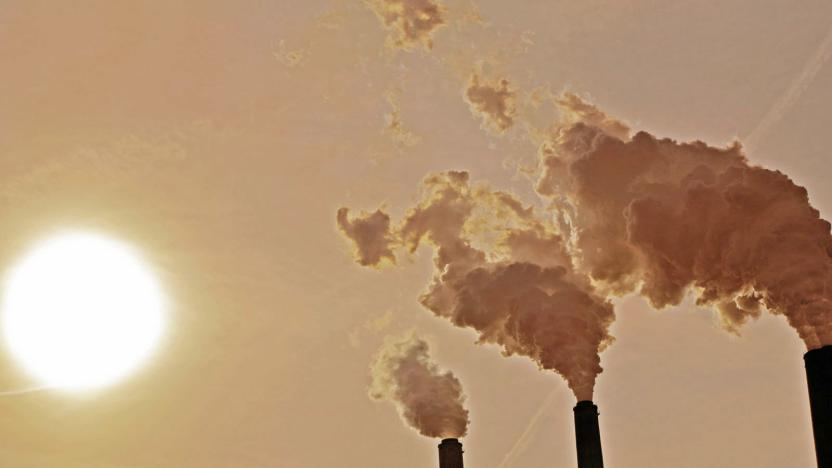
Scientists: Suck CO2 out of atmosphere or face the consequences
We need to start removing carbon dioxide from the atmosphere as soon as possible. If we don't, future generations will have to choose between biblical weather events or spending trillions of dollars trying to avoid them. This is the grim prognosis from an international team of researchers led by former NASA climate science chief, Professor Jim Hansen. Speaking to the Independent about the team's latest research, Hansen said the "shit is hitting the fan" in terms of current climate change progress.

A city covered in trees will fight air pollution in China
It's easy to find buildings laced with greenery in order to reduce their CO2 footprints. But what about an entire city? That's on its way. Construction has started on Liuzhou Forest City, a 30,000-person urban development where every building will be covered in pollution-reducing plants (over 1 million of them, in fact). They'll also rely on geothermal energy for air conditioning and pack solar panels to collect their own energy. Logically, the transportation network will be green as well. It'll revolve around electric cars and a central rail line that links the experimental space to the city of Liuzhou.

Research finds deadly heatwaves will occur more often
A study published today in Nature Climate Change predicts that deadly heatwaves will become more frequent in the future. The study found that currently, around 30 percent of the world experiences life-threatening heat for at least 20 days per year. But if greenhouse gas emissions continue to grow, that number could jump up to 74 percent by 2100.

Class-action suit alleges GM cheated emissions test
Yet another automaker has potentially been caught trying to cheat on its EPA emissions tests. Following VW's "diesel-gate" SNAFU in 2015 and the Justice Department going after Fiat-Chrysler just last week, GM on Thursday found itself the defendant in a class-action suit over its alleged use of "defeat devices" similar to those used by VW.

US sues Fiat Chrysler over diesel emissions cheating
Volkswagen definitely won't be the only major automaker hauled into court for cheating on diesel emissions tests in recent years. In the wake of EPA accusations from January, the US Department of Justice has sued Fiat Chrysler for allegedly using a combination of defeat devices and software to trick regulators into thinking its 3.0-liter EcoDiesel engines are... well, eco-friendly. Reportedly, 2014-2016 model year Ram 1500 and Jeep Grand Cherokee vehicles (104,000 in total) violated the Clean Air Act by meeting emissions rules in EPA testing, but spewing "much higher" nitrogen oxide levels in certain everyday driving situations.






